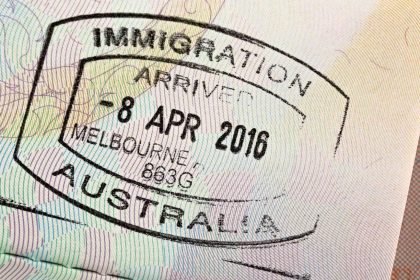Canada start-up visa is a suitable opportunity for entrepreneurs who have innovative business plans and intend to start a new business in this country and in the meantime are able to create job opportunities and expandable business activities. In this article, we will examine the latest developments in Canada’s startup visa laws.

Canada’s Startup Visa program is trying to fill the gaps
To strengthen its rapidly growing technology and technology sector, the Government of Canada introduced the Tech Talent Strategy in June 2023 (July 1402) with the aim of attracting professionals and entrepreneurs in this field. As part of this strategy, the Canadian government has announced changes to the Canada Startup Visa program.
The startup visa program is implemented to help international entrepreneurs and to obtain a Canadian permanent residence permit. This program was initially introduced as a 5-year pilot project in 2013 (1392) and as a replacement for the old Federal Entrepreneur Program that had been running since the 1970s (1349).
However, the startup visa program is not a suitable substitute for the Federal Entrepreneur Program.
Although the startup program has changed over the years, analysis shows that so far only half of the federal entrepreneur program has been effective in 2010 (2019). Canada’s start-up visa program has not been successful in some of the work goals of this program, including creating job opportunities, creating global trade opportunities, and maintaining businesses in the long term.
Creating job opportunities
The main concern of the Canadian startup visa program is its inability to create different job opportunities. Unlike the requirements of the Federal Entrepreneur Program, where applicants must create at least one new job to immigrate to Canada, the Start-up Visa program does not include job opportunities in its admission criteria.
Creating job opportunities and jobs that Canada needs is an important reason why Canada has expanded its pathways for permanent residence permits. Immigrants can contribute to Canada’s growing economy with their experiences and work and professional records, and work immigration plays an important role in this growth.
In a research in 2019 (2018) by Statistics Canada, it was proven that companies owned by international applicants had higher net job growth compared to companies owned by Canadians. While not all jobs owned by international applicants were created through the Federal Entrepreneur Program, these job opportunities accounted for about 21% of all jobs owned by international applicants in 2010 (2019).
 Innovation and internationalization
Innovation and internationalization
Apart from creating diverse job opportunities, Canada’s startup visa program has other goals to promote innovation and internationalization. However, the ability of the startup visa program to attract innovative businesses is still unclear. Prior to the start-up visa program, businesses managed by international applicants in Canada were innovative, although not to the extent recommended by Immigration, Refugees and Citizenship Canada (IRCC).
In another research conducted by Statistics Canada using the data of 2011 (2010), 2014 (2013) and 2017 (2016), it was found that jobs managed by international applicants with more than 20 years of activity in Canada Compared to similar Canadian companies, they used innovation in processes, product manufacturing or marketing and application of patterns more. This research shows that the businesses of the federal entrepreneurship program did not necessarily perform poorly.
While businesses launched through the startup visa program are predicted to exceed these results, the lack of accurate data makes it difficult to determine the accuracy of this prediction. In total, a small number of applicants were approved by investors and most of them were supported by financial support organizations (incubators), in other words, most of the applicants had early start-ups. Indeed, they may have been innovative, but they probably faced challenges in terms of durability and longevity.
While there is no definitive evidence that businesses are more innovative in the startup visa program, the available evidence suggests increased internationalization, another goal of the program. Since the introduction of the startup visa, many entrepreneurs have immigrated to Canada from the United States.
Financial restrictions and obligations
Another area where Canada’s startup visa program has not been successful is foreign direct investment. While the ministerial guidelines for the program do not explicitly state that the capital required to launch startup businesses must come only from Canadian investors, a significant number of approved startup organizations are located in Canada. This shows that the startup program is focused on attracting foreign entrepreneurs to Canada beyond attracting foreign capital.
Regardless of the specific conditions and requirements, it is unlikely that the start-up visa program will attract significant foreign capital to Canada, as foreign entrepreneurs are more likely to seek funding from Canadian investors.
Foreign entrepreneurs who applied through the federal entrepreneurship program eventually brought the needed capital with them to Canada. According to Immigration News, the capital requirement for entrepreneurs in this program was a net worth of $300,000. This approach resulted in these entrepreneurs being 3.1% to 4.5% more likely than their Canadian-born counterparts to rely on their own capital to launch their startup business.
 Startup visa applicants
Startup visa applicants
Against these criticisms, is it necessary to implement the start-up visa program? Apart from the issue of fraudulent applications for start-up visas, there are major problems in implementing this program. One issue is whether the startup visa program diverts potential applicants from other programs. Another issue is whether Canada’s Startup program really offers a path to permanent residency for applicants who are unlikely to be able to obtain it through other routes. Foreign entrepreneurs immigrating to Canada through the Start-up Visa are younger, more highly educated, and have better English or French language skills than applicants who apply for Canadian residency through the Federal Entrepreneurship Program.
These characteristics are similar to the characteristics of applicants who apply to immigrate to Canada through other routes, with the important difference that startup visa applicants also have entrepreneurial skills, while they can easily apply from other routes such as Apply for express entry or provincial nomination programs.
In terms of the individual characteristics of the applicants, the start-up visa does not significantly contribute to the skill mix of immigrating to Canada. However, it provides an opportunity to invest in foreign startups. All these entrepreneurs need is an ecosystem to help them thrive. But the prosperity of these entrepreneurs largely depends on the Canadian startup ecosystem, which essentially turns the startup visa into a tool for investing in risky foreign startups.
So what next?
A policy that works well depends on its careful evaluation. The federal entrepreneurship program was canceled because many foreign entrepreneurs started small, underdeveloped businesses that were not well-suited to Canada’s future economic landscape. However, these businesses attracted some foreign direct investment and created few job opportunities.
As many studies have shown, most startups fail. About half of the startups that received financial support from approved Canadian financial institutions failed within 5 years. Now the question arises, at what stage of the work can we say that this program may not work?
It is better for IRCC to conduct a full evaluation of the start-up visa program to evaluate its performance based on its specific goals, i.e. creating job opportunities, innovation and internationalization, and also provide achievable goals for these goals.
When IRCC closes a pathway to permanent residency and opens a new pathway, Canadians should not only question whether this pathway is aligned with our goals, but whether those goals are clear and developable. are and can be evaluated over time.
Conclusion
One of the methods of obtaining a permanent residence permit and finally citizenship of Canada is to receive a startup visa of this country and start an innovative business. If you have an innovative business plan with the ability to develop and grow after starting a business, and you also have the right financial conditions to provide the necessary capital to start a startup business, consult with an immigration consultant and lawyer today. The lawyers and consultants of Estehbanati Immigration Institute, having the necessary knowledge about the Canadian startup program, provide you with valuable guidance and help you a lot in the process of obtaining a Canadian startup visa.
RCO NEWS

















